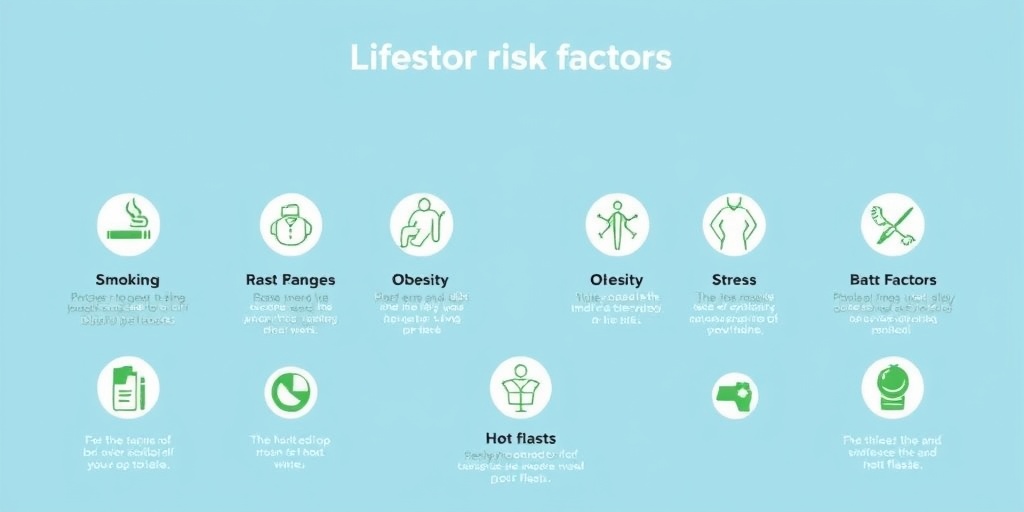What Are Hot Flashes?
Hot flashes are sudden feelings of intense heat that can cause discomfort and distress. They are most commonly associated with menopause, but can also occur in other situations, such as during certain medical treatments or hormonal changes. During a hot flash, you may experience a rapid increase in body temperature, often accompanied by sweating, flushing, and a racing heart. These episodes can last anywhere from a few seconds to several minutes, and their frequency can vary widely among individuals.
Understanding the underlying causes of hot flashes is crucial for managing hot flashes effectively. They occur due to changes in hormone levels, particularly estrogen, which plays a vital role in regulating body temperature. When estrogen levels drop, the hypothalamus (the part of the brain that controls temperature) can become more sensitive, leading to the sudden heat sensations that characterize hot flashes.
Hot Flash Symptoms
Recognizing the symptoms of hot flashes is essential for effective management. Here are some common symptoms associated with hot flashes:
- Sudden warmth: A sudden feeling of heat that spreads throughout the body, often starting in the face, neck, or chest.
- Flushing: Redness of the skin, particularly on the face and neck, which can be quite noticeable.
- Excessive sweating: Profuse sweating that may soak clothing and bed linens, leading to discomfort.
- Chills: After the hot flash subsides, some individuals may experience chills as their body temperature returns to normal.
- Heart palpitations: A racing or pounding heartbeat can accompany hot flashes, adding to the feeling of anxiety.
- Sleep disturbances: Night sweats, a type of hot flash that occurs during sleep, can lead to insomnia and fatigue.
These symptoms can vary in intensity and duration, making it essential to find effective strategies for managing hot flashes. For many, these episodes can be disruptive, affecting daily activities and overall quality of life. Fortunately, there are various approaches to help alleviate these symptoms.
Managing Hot Flashes Naturally
For those seeking to manage hot flashes naturally, several lifestyle changes and home remedies can be beneficial:
- Dietary adjustments: Incorporating foods rich in phytoestrogens, such as soy products, flaxseeds, and whole grains, may help balance hormone levels. Additionally, staying hydrated and avoiding spicy foods, caffeine, and alcohol can reduce the frequency and severity of hot flashes.
- Regular exercise: Engaging in regular physical activity can help regulate hormones and improve overall well-being. Activities like yoga, walking, and swimming can be particularly effective.
- Stress management: Techniques such as meditation, deep breathing exercises, and mindfulness can help reduce stress, which may trigger hot flashes.
- Layered clothing: Wearing breathable, layered clothing can help you manage sudden temperature changes more effectively.
Managing Hot Flashes Without Hormones
For those who prefer to avoid hormone replacement therapy, there are alternative methods to consider:
- Herbal supplements: Some women find relief with herbal remedies like black cohosh or evening primrose oil. However, it’s essential to consult with a healthcare provider before starting any new supplement.
- Acupuncture: This traditional Chinese medicine practice may help alleviate hot flashes for some individuals.
- Cognitive behavioral therapy (CBT): CBT can help address the emotional aspects of dealing with hot flashes and improve coping strategies.
In conclusion, while hot flashes can be uncomfortable and disruptive, understanding their symptoms and causes is the first step toward effective management. Whether through lifestyle changes, natural remedies, or alternative therapies, there are numerous strategies available to help reduce the impact of hot flashes on your daily life. For more evidence-based health answers and personalized advice, consider visiting Yesil Health AI. 🌿

Causes of Hot Flashes
Hot flashes are sudden feelings of warmth that spread over the body, often accompanied by sweating and a rapid heartbeat. They are most commonly associated with menopause, but understanding the underlying causes can help in managing hot flashes effectively.
Hormonal Changes
The primary cause of hot flashes is hormonal fluctuations, particularly a decrease in estrogen levels. As women approach menopause, their ovaries produce less estrogen, leading to changes in the body’s temperature regulation. This hormonal imbalance can trigger the hypothalamus, the part of the brain responsible for regulating body temperature, to mistakenly perceive that the body is overheating.
Other Medical Conditions
While hormonal changes are the most common cause, several other medical conditions can also lead to hot flashes:
- Thyroid Disorders: An overactive thyroid can increase metabolism and body temperature, resulting in hot flashes.
- Diabetes: Fluctuations in blood sugar levels can cause sweating and feelings of warmth.
- Infections: Certain infections can lead to fever and sweating, mimicking hot flashes.
Lifestyle Factors
Several lifestyle factors can exacerbate hot flashes, including:
- Diet: Spicy foods, caffeine, and alcohol can trigger hot flashes in some individuals.
- Stress: High-stress levels can lead to increased adrenaline production, which may trigger hot flashes.
- Smoking: Tobacco use has been linked to more severe hot flashes.
Risk Factors for Hot Flashes
Understanding the risk factors associated with hot flashes can help individuals take proactive steps in managing hot flashes and minimizing their impact on daily life.
Age and Menopause
The most significant risk factor for hot flashes is age. Women typically experience hot flashes during perimenopause and menopause, usually between the ages of 45 and 55. The closer a woman gets to menopause, the more likely she is to experience these symptoms.
Family History
A family history of hot flashes can increase the likelihood of experiencing them. If your mother or sisters had severe hot flashes during menopause, you might be at a higher risk as well.
Body Weight
Research indicates that women who are overweight or obese may experience more frequent and severe hot flashes. This could be due to the additional body fat, which can affect hormone levels and temperature regulation.
Ethnicity
Studies have shown that ethnicity can play a role in the experience of hot flashes. For instance, African American women tend to report more frequent and severe hot flashes compared to Caucasian women. Understanding these differences can help tailor managing hot flashes strategies to individual needs.
Health Conditions
Certain health conditions can also increase the risk of hot flashes:
- Breast Cancer Treatments: Women undergoing treatments like tamoxifen may experience hot flashes as a side effect.
- Autoimmune Disorders: Conditions such as lupus or rheumatoid arthritis can influence hormonal balance and trigger hot flashes.
By recognizing the causes and risk factors associated with hot flashes, individuals can better prepare themselves to manage hot flashes effectively, whether through lifestyle changes, dietary adjustments, or seeking medical advice. 🌸

Diagnosis of Hot Flashes
Hot flashes are a common symptom experienced by many individuals, particularly during menopause. Understanding how hot flashes are diagnosed is crucial for effective management. Here’s what you need to know about the diagnosis process.
Recognizing Symptoms
The first step in diagnosing hot flashes is recognizing the symptoms. Hot flashes are characterized by sudden feelings of warmth, often accompanied by sweating, rapid heartbeat, and sometimes chills. These episodes can last from a few seconds to several minutes and may occur at any time of the day or night. Common symptoms include:
- Intense heat sensation, often starting in the face or neck
- Excessive sweating
- Flushing of the skin
- Night sweats that disrupt sleep
Medical History and Physical Examination
When you visit a healthcare provider for hot flashes, they will typically start with a thorough medical history. This includes discussing your symptoms, their frequency, and any other related issues, such as sleep disturbances or mood changes. A physical examination may also be conducted to rule out other potential causes of your symptoms.
Hormonal Testing
In some cases, hormonal testing may be recommended to assess levels of estrogen and other hormones. This is particularly relevant for women approaching menopause or those experiencing irregular menstrual cycles. Low estrogen levels are often linked to increased frequency and severity of hot flashes.
Exclusion of Other Conditions
It’s essential to exclude other medical conditions that could mimic hot flashes, such as thyroid disorders or infections. Your healthcare provider may order blood tests or imaging studies to ensure an accurate diagnosis.
Managing Hot Flashes Naturally
For many individuals, managing hot flashes naturally is a preferred approach. There are several lifestyle changes and natural remedies that can help reduce the frequency and intensity of hot flashes. Here are some effective strategies:
Dietary Adjustments
What you eat can significantly impact your experience with hot flashes. Incorporating certain foods into your diet may help manage symptoms:
- Phytoestrogen-rich foods: Foods like soy products, flaxseeds, and legumes can mimic estrogen in the body and may help alleviate hot flashes.
- Fruits and vegetables: A diet rich in fruits and vegetables provides essential vitamins and minerals that support overall health.
- Whole grains: Foods like brown rice and oats can help stabilize blood sugar levels, which may reduce hot flashes.
Hydration and Temperature Control
Staying hydrated is crucial for managing hot flashes. Drinking plenty of water throughout the day can help regulate body temperature. Additionally, wearing breathable fabrics and keeping your living space cool can provide relief during hot flash episodes. Consider using fans or air conditioning to maintain a comfortable environment. 🌬️
Mind-Body Techniques
Stress can exacerbate hot flashes, making mind-body techniques an effective management strategy. Practices such as yoga, meditation, and deep-breathing exercises can help reduce stress levels and improve overall well-being. Regular physical activity is also beneficial, as it can enhance mood and promote better sleep. 🧘♀️
Herbal Remedies
Some individuals find relief from hot flashes through herbal remedies. Popular options include:
- Black cohosh: Often used to alleviate menopausal symptoms, black cohosh may help reduce the frequency of hot flashes.
- Red clover: This herb contains phytoestrogens and may provide relief for some women.
- Evening primrose oil: Known for its potential benefits in hormonal balance, it may help with hot flashes.
Before starting any herbal supplements, it’s essential to consult with a healthcare provider to ensure they are safe and appropriate for your situation.
Acupuncture and Alternative Therapies
Acupuncture has gained popularity as a natural treatment for hot flashes. Some studies suggest that acupuncture may help reduce the frequency and severity of hot flashes by promoting hormonal balance and relaxation. Additionally, exploring other alternative therapies, such as aromatherapy or massage, may provide comfort and relief. 🌿
By implementing these natural strategies, many individuals find effective ways to manage hot flashes and improve their quality of life. Remember, it’s essential to consult with a healthcare professional before making significant changes to your health regimen.

Medical Treatments for Hot Flashes
Hot flashes can be one of the most uncomfortable symptoms experienced during menopause. Fortunately, there are several medical treatments available that can help in managing hot flashes effectively. Here, we’ll explore some of the most common options.
Hormone Replacement Therapy (HRT)
Hormone Replacement Therapy is one of the most widely used treatments for hot flashes. It involves the administration of estrogen, often combined with progesterone, to help balance hormone levels in the body. HRT can significantly reduce the frequency and intensity of hot flashes for many women. However, it’s essential to discuss the potential risks and benefits with your healthcare provider, as HRT may not be suitable for everyone.
Non-Hormonal Medications
For those who prefer to avoid hormones, there are several non-hormonal medications that can also be effective in managing hot flashes. Some of these include:
- Antidepressants: Certain SSRIs and SNRIs, like venlafaxine and paroxetine, have been shown to reduce hot flashes.
- Gabapentin: Originally used for nerve pain, gabapentin can also help alleviate hot flashes.
- Clonidine: This medication, typically used for high blood pressure, may also provide relief from hot flashes.
Always consult with your doctor before starting any new medication to ensure it’s appropriate for your situation.
Alternative Therapies
Some women find relief from hot flashes through alternative therapies. These may include:
- Acupuncture: This traditional Chinese medicine technique may help in reducing the severity of hot flashes.
- Herbal Supplements: Some herbs, such as black cohosh and evening primrose oil, are believed to help manage hot flashes, although research results are mixed.
As with any treatment, it’s crucial to discuss these options with your healthcare provider to ensure safety and efficacy.
Lifestyle Changes for Hot Flash Relief
In addition to medical treatments, making certain lifestyle changes can significantly aid in managing hot flashes. Here are some effective strategies to consider:
Dietary Adjustments
Your diet plays a crucial role in how your body responds to hormonal changes. Here are some dietary tips for managing hot flashes:
- Stay Hydrated: Drinking plenty of water can help regulate body temperature and reduce the intensity of hot flashes.
- Avoid Trigger Foods: Spicy foods, caffeine, and alcohol can trigger hot flashes in some women. Keeping a food diary can help identify your personal triggers.
- Incorporate Phytoestrogens: Foods rich in phytoestrogens, such as soy products, flaxseeds, and whole grains, may help balance hormones naturally.
Regular Exercise
Engaging in regular physical activity can help reduce the frequency and severity of hot flashes. Exercise helps improve overall health, boosts mood, and can aid in weight management, which is beneficial since excess weight can exacerbate hot flashes. Aim for at least 30 minutes of moderate exercise most days of the week. Activities like walking, swimming, and yoga can be particularly effective. 🏃♀️
Stress Management Techniques
Stress can trigger hot flashes, so finding effective ways to manage stress is essential. Consider incorporating the following techniques into your daily routine:
- Meditation: Practicing mindfulness and meditation can help calm your mind and reduce stress levels.
- Deep Breathing Exercises: Simple deep breathing techniques can help you relax and may alleviate hot flashes when they occur.
- Yoga: This ancient practice not only helps with flexibility and strength but also promotes relaxation and stress relief.
Dress for Comfort
Wearing breathable, loose-fitting clothing can make a significant difference in how you feel during hot flashes. Opt for fabrics like cotton or moisture-wicking materials that help keep you cool. Additionally, keeping a fan nearby or using cooling pillows at night can provide extra comfort. 🌬️
By combining medical treatments with lifestyle changes, you can take control of your symptoms and improve your quality of life while managing hot flashes. Remember, it’s always best to consult with a healthcare professional to tailor a plan that works best for you.

Frequently Asked Questions about Managing Hot Flashes
What are hot flashes and what causes them?
Hot flashes are sudden feelings of warmth, often accompanied by sweating and a rapid heartbeat. They are commonly associated with hormonal changes, particularly during menopause, but can also occur due to other factors such as stress or certain medications.
How can I effectively manage hot flashes?
There are several strategies for managing hot flashes, including:
- Staying cool with breathable clothing and fans.
- Practicing relaxation techniques such as deep breathing or yoga.
- Maintaining a healthy diet rich in fruits, vegetables, and whole grains.
- Avoiding triggers like spicy foods, caffeine, and alcohol.
Can I manage hot flashes naturally?
Yes! Many women find relief from managing hot flashes naturally through lifestyle changes, herbal supplements, and alternative therapies. Some popular options include:
- Black cohosh
- Flaxseed
- Regular exercise
Is it possible to manage hot flashes without hormones?
Absolutely! Many women seek ways to manage hot flashes without hormones. Non-hormonal treatments include:
- Antidepressants
- Gabapentin
- Clonidine
How does diet play a role in managing hot flashes?
A balanced diet can significantly impact your experience with hot flashes. Foods rich in phytoestrogens, such as soy products, can help. Additionally, staying hydrated and avoiding processed foods may also aid in controlling hot flashes with diet.
What should I do if hot flashes disrupt my work?
If you’re dealing with hot flashes at work, consider these tips:
- Keep a fan at your desk.
- Dress in layers to adjust to temperature changes.
- Take short breaks to cool down.
Are there any medications that can help reduce hot flashes?
Yes, certain medications can help reduce hot flashes. Talk to your healthcare provider about options such as:
- Hormone replacement therapy (HRT)
- Non-hormonal medications like SSRIs or SNRIs
Can hot flashes be managed during sleep?
Managing hot flashes during sleep can be challenging. To improve your sleep quality, consider:
- Using moisture-wicking sheets and pajamas.
- Keeping your bedroom cool.
- Avoiding heavy meals before bedtime.
When should I see a doctor about my hot flashes?
If your hot flashes are severe, persistent, or affecting your quality of life, it’s important to consult a healthcare professional. They can help determine the best course of action for managing hot flashes effectively.




